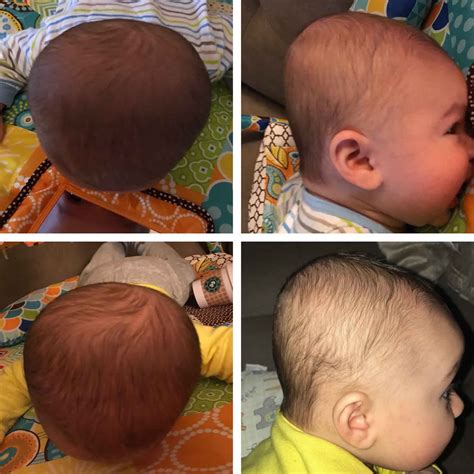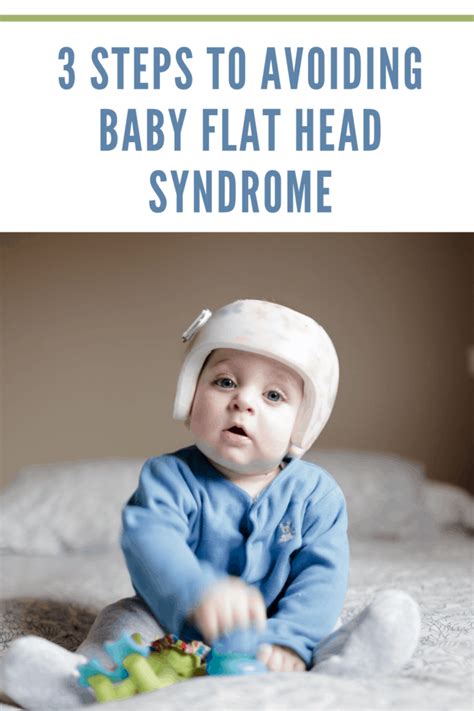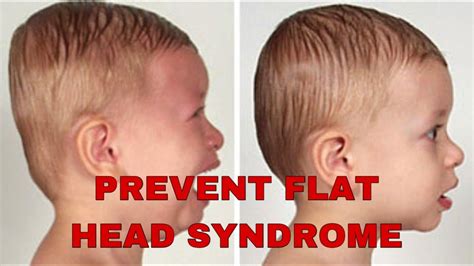Intro
Learn 5 ways to fix flat head syndrome, a common infant condition. Discover positional plagiocephaly treatments, helmet therapy, and exercises to correct flat spots, promoting healthy skull development and preventing long-term effects.
The importance of addressing Flat Head Syndrome, also known as positional plagiocephaly, cannot be overstated. This condition, which affects many infants, can lead to a misshapen head if left untreated. The causes of Flat Head Syndrome are varied, but it is often the result of babies spending too much time on their backs, which can cause their soft skulls to become flattened. As a parent, it's essential to be aware of the signs and symptoms of this condition and take proactive steps to prevent or treat it. In this article, we will delve into the world of Flat Head Syndrome, exploring its causes, symptoms, and most importantly, ways to fix it.
Flat Head Syndrome is a common condition that can be caused by a variety of factors, including sleeping position, genetic predisposition, and premature birth. It's crucial for parents to understand the risks associated with this condition and take steps to prevent it. By being proactive and taking the necessary precautions, parents can help their babies develop a healthy, symmetrical head shape. In the following sections, we will discuss the various methods for fixing Flat Head Syndrome, including physical therapy, helmet therapy, and changes to daily habits.
The impact of Flat Head Syndrome on a child's development and self-esteem cannot be ignored. A misshapen head can lead to low self-esteem and social anxiety, making it essential to address this condition as early as possible. Fortunately, there are many effective ways to fix Flat Head Syndrome, and with the right approach, parents can help their babies develop a healthy, normal head shape. From physical therapy to helmet therapy, we will explore the various options available to parents, providing them with the knowledge and confidence to make informed decisions about their child's care.
Understanding Flat Head Syndrome

Causes of Flat Head Syndrome
The causes of Flat Head Syndrome are varied, but some of the most common include: * Sleeping position: Babies who spend too much time on their backs can develop a flattened head shape. * Genetic predisposition: Some babies may be more prone to developing Flat Head Syndrome due to their genetic makeup. * Premature birth: Premature babies are at a higher risk of developing Flat Head Syndrome due to their soft skulls.Symptoms of Flat Head Syndrome
The symptoms of Flat Head Syndrome can vary, but some common signs include: * A flattened or misshapen head shape * A noticeable imbalance in the shape of the head * A soft spot on the top of the head that is larger than usualFixing Flat Head Syndrome

Physical Therapy
Physical therapy is an essential part of fixing Flat Head Syndrome. A physical therapist can work with parents to develop a customized exercise program that helps to strengthen the muscles in the neck and improve the shape of the head. Some common physical therapy exercises include: * Neck stretches: Gentle stretches can help to improve the range of motion in the neck and reduce the risk of Flat Head Syndrome. * Head turns: Encouraging babies to turn their heads from side to side can help to strengthen the muscles in the neck and improve the shape of the head.Helmet Therapy
Helmet therapy is a highly effective way to fix Flat Head Syndrome. A customized helmet is designed to fit the baby's head, applying gentle pressure to the flattened areas and encouraging the head to grow into a more symmetrical shape. Helmet therapy is typically used in conjunction with physical therapy and can be highly effective in treating Flat Head Syndrome.Changes to Daily Habits
Making changes to daily habits can also help to fix Flat Head Syndrome. Some common changes include: * Alternating sleep positions: Encouraging babies to sleep on their sides or stomachs can help to reduce the risk of Flat Head Syndrome. * Increasing tummy time: Spending more time on the stomach can help to strengthen the muscles in the neck and improve the shape of the head. * Avoiding prolonged periods in car seats or swings: Limiting the amount of time spent in car seats or swings can help to reduce the risk of Flat Head Syndrome.Preventing Flat Head Syndrome

Benefits of Prevention
Preventing Flat Head Syndrome has numerous benefits, including: * Reduced risk of long-term effects: Preventing Flat Head Syndrome can help to reduce the risk of long-term effects, such as low self-esteem and social anxiety. * Improved head shape: Preventing Flat Head Syndrome can help to improve the shape of the head, reducing the risk of a misshapen or flattened head. * Increased confidence: Preventing Flat Head Syndrome can help to increase confidence, both for parents and babies.Treatment Options

Physical Therapy
Physical therapy is a highly effective treatment option for Flat Head Syndrome. A physical therapist can work with parents to develop a customized exercise program that helps to strengthen the muscles in the neck and improve the shape of the head.Helmet Therapy
Helmet therapy is a highly effective treatment option for Flat Head Syndrome. A customized helmet is designed to fit the baby's head, applying gentle pressure to the flattened areas and encouraging the head to grow into a more symmetrical shape.Changes to Daily Habits
Making changes to daily habits can also help to treat Flat Head Syndrome. Some common changes include: * Alternating sleep positions: Encouraging babies to sleep on their sides or stomachs can help to reduce the risk of Flat Head Syndrome. * Increasing tummy time: Spending more time on the stomach can help to strengthen the muscles in the neck and improve the shape of the head. * Avoiding prolonged periods in car seats or swings: Limiting the amount of time spent in car seats or swings can help to reduce the risk of Flat Head Syndrome.Conclusion and Next Steps

We invite you to share your thoughts and experiences with Flat Head Syndrome in the comments below. Have you or someone you know been affected by this condition? What treatment options have you found to be most effective? By sharing your story, you can help to raise awareness and support for this important issue.
What is Flat Head Syndrome?
+Flat Head Syndrome, also known as positional plagiocephaly, is a condition that affects the shape of a baby's head, causing it to become flattened or misshapen.
What are the causes of Flat Head Syndrome?
+The causes of Flat Head Syndrome include sleeping position, genetic predisposition, and premature birth.
How can I prevent Flat Head Syndrome?
+Preventing Flat Head Syndrome involves alternating sleep positions, increasing tummy time, and avoiding prolonged periods in car seats or swings.
What are the treatment options for Flat Head Syndrome?
+The treatment options for Flat Head Syndrome include physical therapy, helmet therapy, and changes to daily habits.
How long does it take to treat Flat Head Syndrome?
+The length of time it takes to treat Flat Head Syndrome varies depending on the severity of the condition and the individual needs of the baby.
